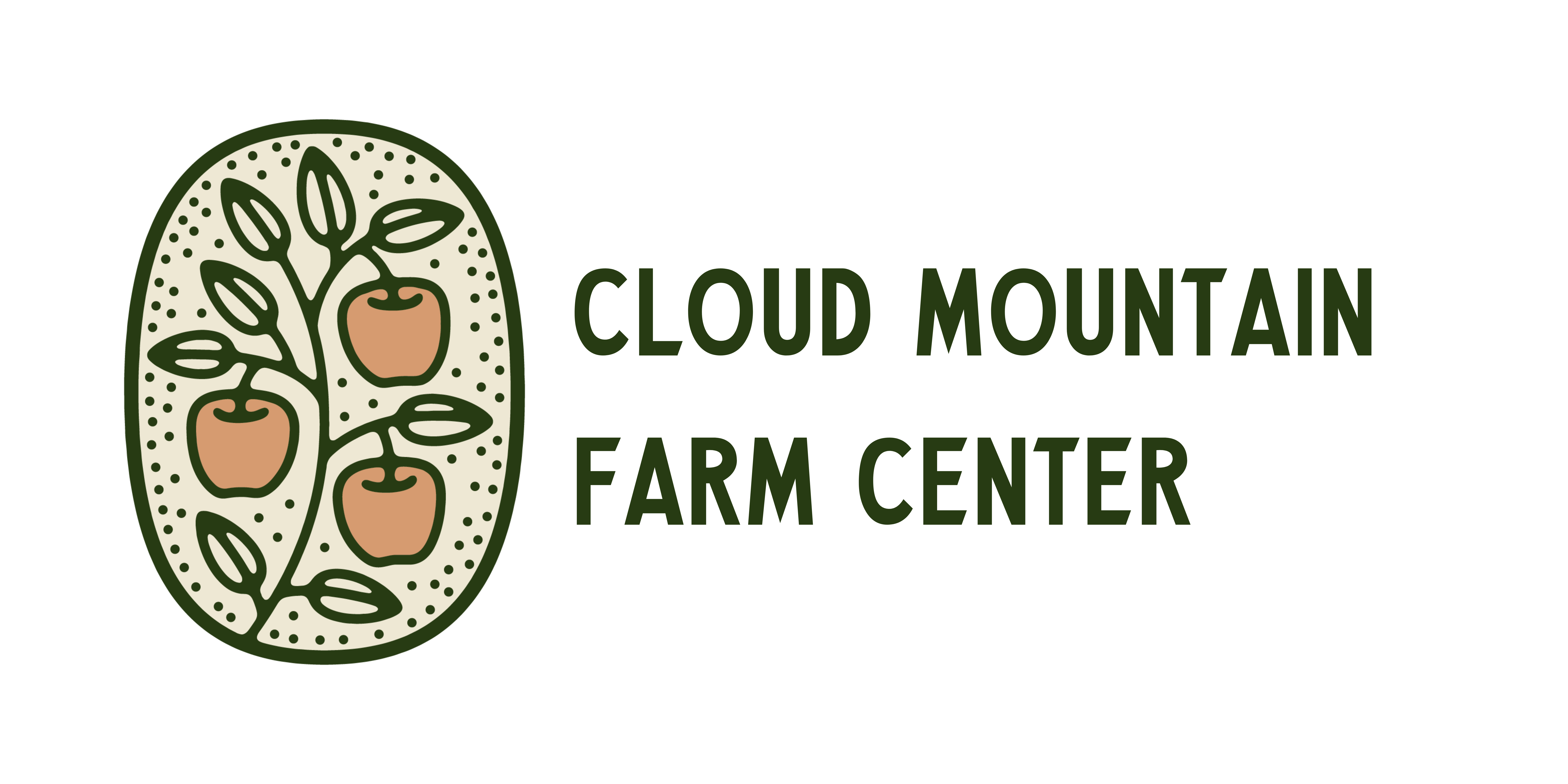By Layla Dunlap, CMFC Nursery Manager
As I look out over Cloud Mountain Farm Center’s Nursery from our office window, I see brilliant colors starting to pop-up as spring slowly arrives. It gets me excited about warmer weather, hiking season, and botanizing. Botanizing is a term I like to use for identifying plants while I’m in the woods. My love for botanizing began when a friend suggested we take a class to learn the plants we would see while hiking in Montana. I was immediately hooked and spent several seasons working as a botanist looking for rare and sensitive plant species of the PNW. But it wasn’t until I started growing native plants that I truly found my passion. Who doesn’t like watching plants grow, especially when they’re little baby native plants? And who doesn’t want a little piece of wildland in their yard? I want a native plant garden!
Why should you want native gardens? Native gardens, once established, can make beautiful landscapes as well as provide wildlife habitat and food for pollinators. Native plants are low maintenance; they require minimal water and no fertilizer or pesticides once established. Wouldn’t you like more time to stop and smell the natives? Using these plants in the landscape also helps promote biodiversity and sustainability. With habitat loss occurring, growing native plants even in a small area will help to conserve these species.
Once you’ve decided there is no reason not to add natives to your landscape, then what should you do? Think about your planting area: is it shady or sunny? Is your site really wet or extremely dry? Is your site protected from wind? What size plants will fit best in your space? What do you want to gain from these plantings? These questions will help you decide which native plants to choose. In my “dream” garden I envision lupine, lots of lupine…ocean spray shrubs ….tiger lilies…and much, much more. For inspiration, visit Kruckeburg Botanic Garden in Shoreline, WA as a great example of native gardens. They have four acres of native plant gardens with some exotic plants as well. The Bloedel Reserve on Bainbridge Island offers another fantastic example of landscaping with natives.
Cloud Mountain Farm Center’s Nursery carries several native plant species, and our staff is ready to assist you with your native plant questions. Here are just a few suggestions of natives to use in your landscape:
- *Amelanchier alnifolia, Serviceberry. Attract birds to your garden with this native shrub. Deciduous shrubs with white spring flowers, edible berries in summer, and good fall foliage.
- Cornus stolonifera, Red-osier dogwood. Deciduous shrubs with berry-like fruit that ripens in late summer, persists as fall and winter food for birds.
- *Mahonia species, Oregon grape and relatives. Evergreen shrubs with flowers providing nectar in winter and early spring, berries late summer and fall.
- *Ribes sanguineum, Red-flowering currant. Deciduous shrub that provides nectar during the spring, and berries for the birds in late summer.
- Sambucus racemosa or caerulea, Red or blue elderberry. Deciduous shrubs that provide berries late summer. Flowers attract hummingbirds.
- Symphoricarpos albus, Snowberry. Deciduous native shrub with white berries. These berries are not eaten by birds until late winter, when food supplies for them are scarce.
- *Vaccinium ovatum, Evergreen huckleberry. There are several species of huckleberries in the PNW. Hucks bear fruit through summer & autumn.
- Rubus spectablis, Salmonberry. Deciduous shrub that produces delicious berries.
- Lonicera involucrata, Twinberry.
- *Aquilegia formosa, Red columbine. Attracts hummingbirds. Self-seeding perennial that tolerates full sun to part shade.
- Lonicera ciliosa, Trumpet honeysuckle. Vine that prefers part shade to shade. Orange tubular flowers attracts hummingbirds.
- Penstemon species. The largest genus in North America! Penstemon species have tubular flowers that attract hummingbirds.
- *Dodecatheon hendersonii, Shooting star. One of the first natives to bloom. Pretty pink flowers will attract insects to your garden.
* Denotes that Cloud Mountain Farm Center Nursery carries these plants.

